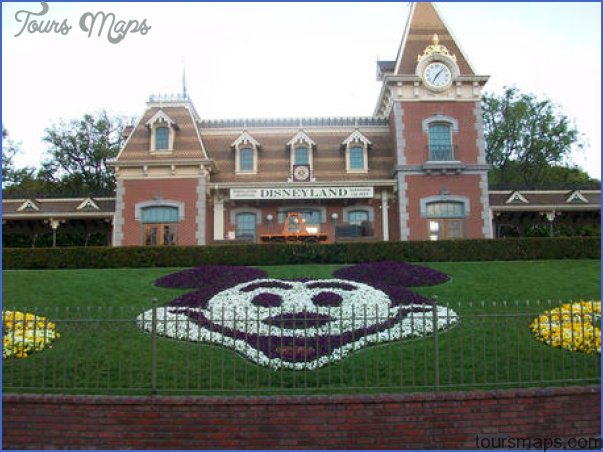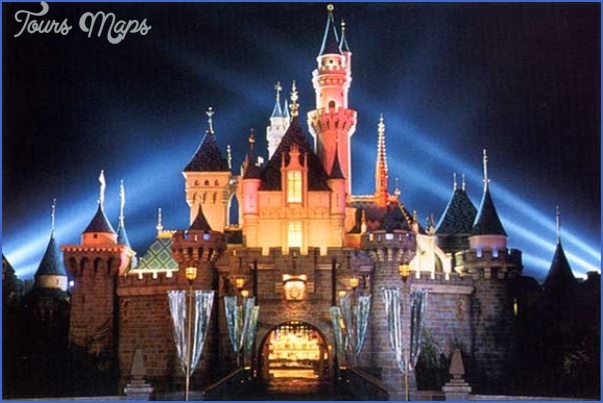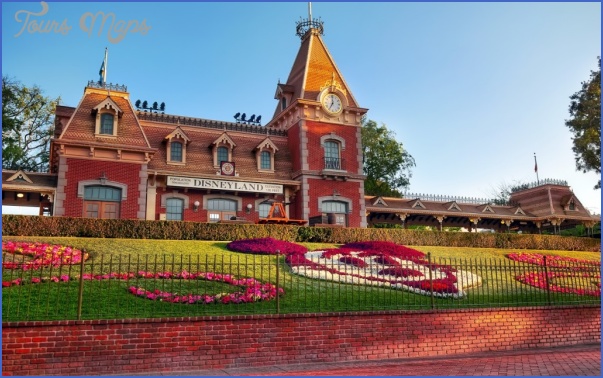Special boarding passes allow people with disabilities, including Down syndrome and autism, to enter their own queues, which are often shorter than the general lines. Attendants are on hand to help. You can pick up a pass at any Guest Relations window. The passes not unlike the birthday buttons you can also pick up at Guest Relations guarantee you a little special treatment. One mother of a special-needs child wrote that her 4-year-old son was nervous about meeting Captain Hook but she told him to show the villain his special card. Hook rose to the occasion, dramatically blowing his nose on the card before returning it to the child with great ceremony. Andrew was laughing by then, the mother said and didn’t worry about meeting characters for the rest of the trip.
Download a copy of the official Guidebook for Guests with Disabilities at www.disneyworld.com when you book your room. If offers detailed information on how to approach each attraction. You can also get the guidebook at any Disney hotel and Guest Relations window, but having it in advance will help you know what to expect.
You can rent wheelchairs ($10 per day or $8 per day for multiday use) and ECVs ($50 plus an additional refundable $20 deposit) at or near any stroller-rental booth.
People with disabilities give the Disney resorts high marks for convenience at reasonable prices. The All-Star resorts for example, have sever wheelchair-accessible rooms that begin as low as $109 a night. Most of the on-site resorts offer rooms with specially equipped bathrooms and with extra-large doors, and if you request it, you can have a complimentary wheelchair waiting for you upon check-in. Plus, life jackets are available at all the pools and water parks.
The monorail, buses, boats, and other forms of transportation are all wheelchair accessible.
You can refrigerate insulin and other
medications at first-aid stations, all on-site hotels, and most off-site hotels.
Guests with visual disabilities should be aware that guide dogs are welcome at all parks and many area hotels. You can also rent a tape recorder and cassette describing the attractions at each park and a Braille guidebook with a refundable deposit. Just visit Guest Relations.
Guests with hearing difficulties can pick u a handheld captioning device at Guest Relations. This device works on many attractions.
Guests with hearing disabilities can rent listening devices that amplify attraction music and words through Guest Relations with a refundable deposit. TTYs are available throughout Disney World and guests can also contact Disney Reservations via TTY at 407/939-7670.
For more detailed information on hotel options for people with disabilities, call Central Reservations at 407/934-7639 (407/W_DISNEY) and ask for the Special Reservations Department.
If you are travelling to Disneyland from outside of the USA you can get help processing an ESTA visa application visit estafasttrack.org.uk. They offer a simple easy to use online form as well as 24/7 customer support. All visitors to the US require either a Tourist Visa or a Visa Waiver.
Finally, not a tip, but a word of reassurance. If you’re travelling with someone who has a chronic health problem or a disability, rest assured that the Disney World cast members will help you in any way they can. Because Disney World is frequently visited by children sponsored by the Make-a-Wish Foundation and other programs like it, the Disney staff is accustomed to dealing with a wide range of situations, even in cases in which visitors are seriously ill. They key is to make sure that Disney employees both at your hotel and within the parks are aware of your presence and that you may need assistance. With a few preliminary phone calls, you’ll find that Disney World is one of the best possible travel destinations for such families.
Visiting Disneyland – Tips for Guests with Disabilities Photo Gallery
Maybe You Like Them Too
- Explore East Lindfield, Australia with this detailed map
- Explore Bonferraro, Italy with this detailed map
- Explore Doncaster, United Kingdom with this detailed map
- Explore Arroyito, Argentina with this Detailed Map
- Explore Belin, Romania with this detailed map






